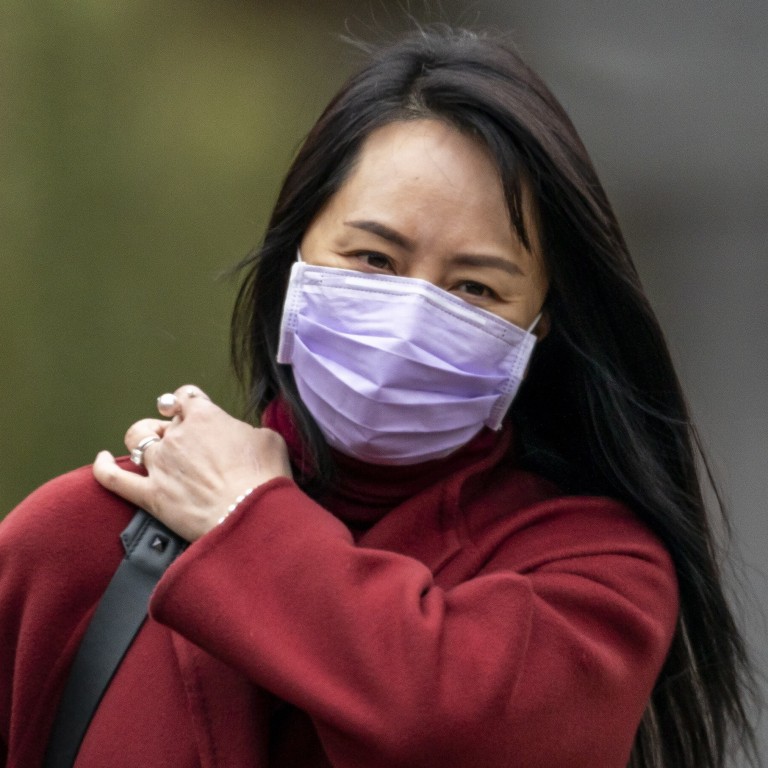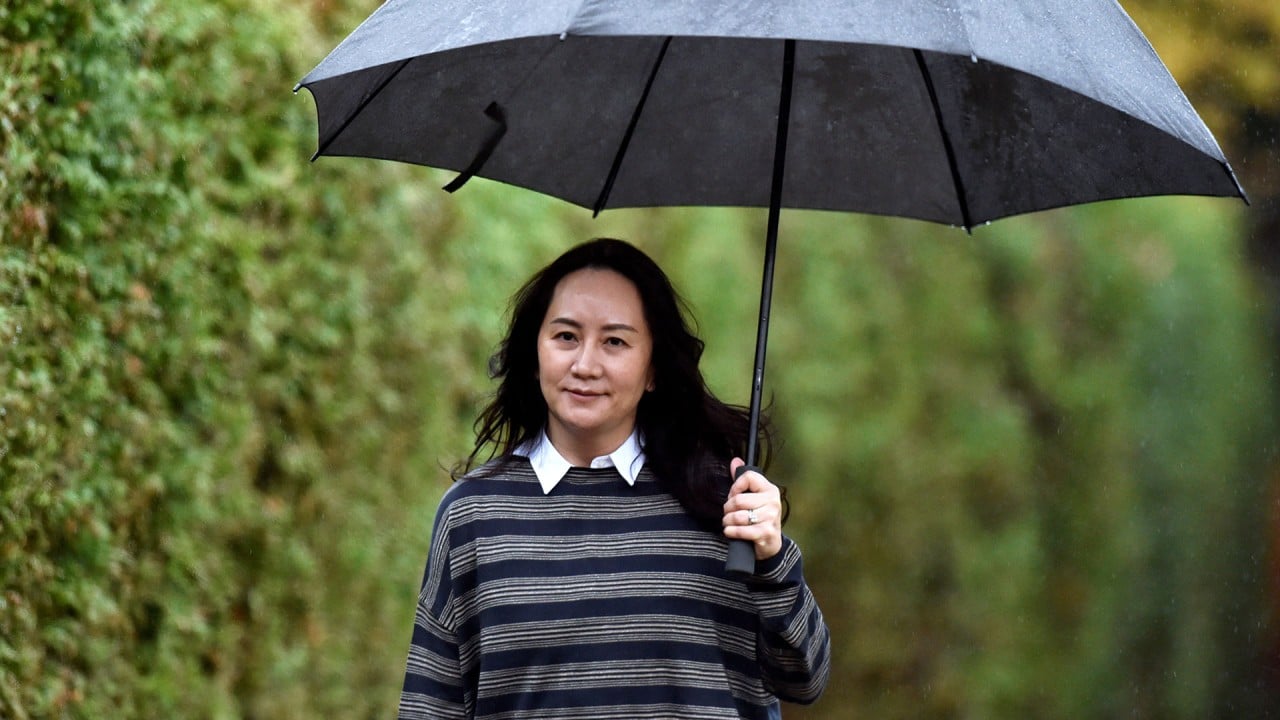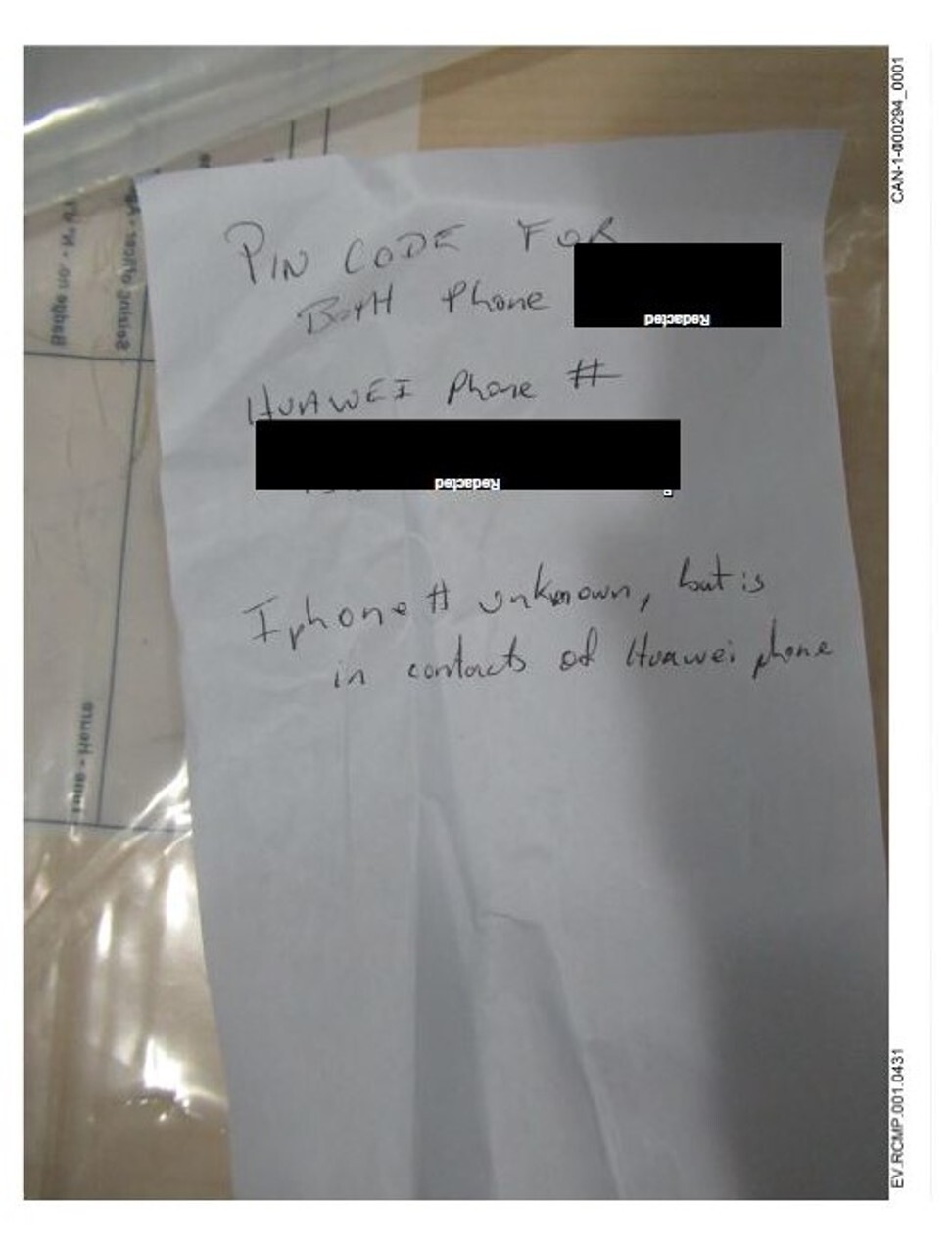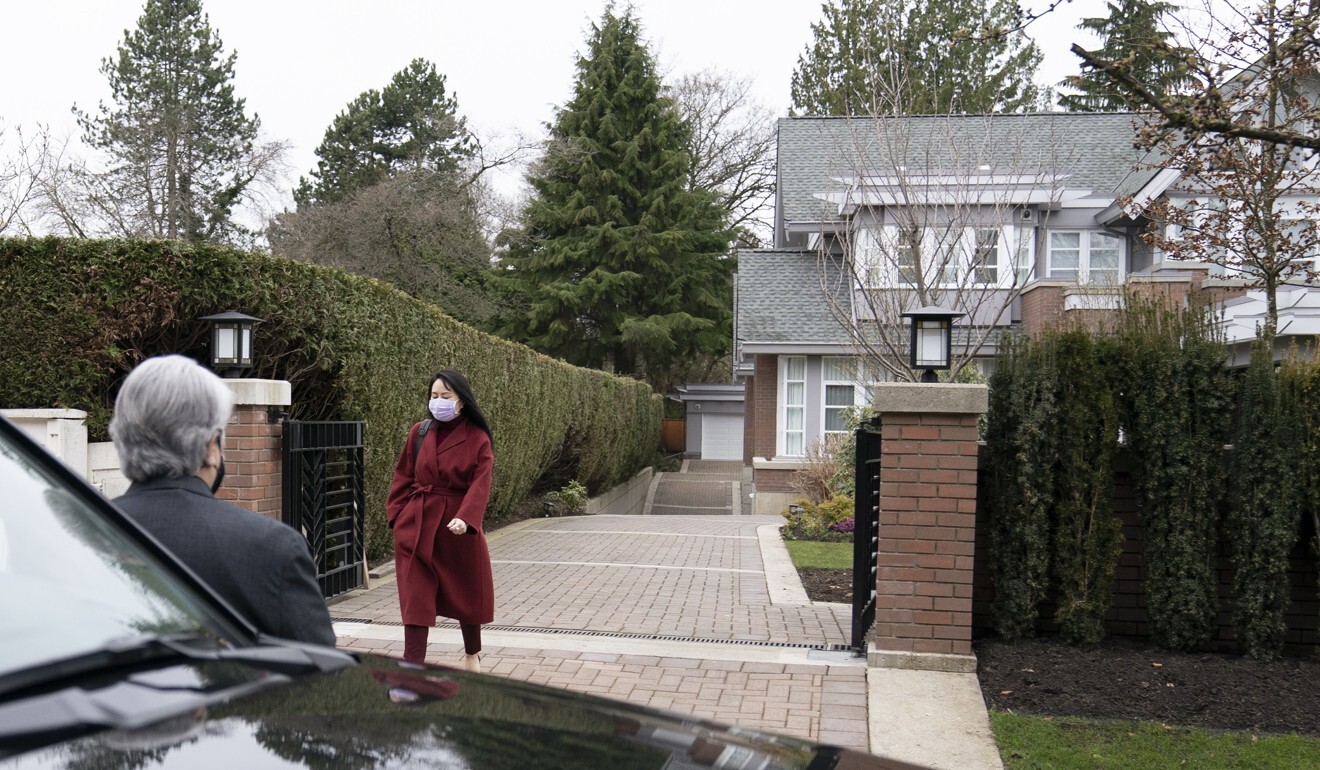
Meng Wanzhou’s lawyer accuses Canadian border officer of fabricating testimony about phone passcodes
- Border officer Scott Kirkland engaged in ‘complete fabrication’ by saying he gave passcodes to police by accident, Meng’s lawyer says at extradition hearing
- This was part of an alleged abuse of process that should result in Meng being released, the court in Vancouver is told
Meng Wanzhou’s lawyer has accused a Canadian border agent of falsifying testimony about how the Huawei Technologies executive’s phone passwords ended up in the hands of police.
Canada Border Services Agency officer Scott Kirkland had told Meng’s extradition hearing in October that his handwritten note with the passcodes was accidentally turned over to the Royal Canadian Mounted Police, in a pile of other documents, after Meng was arrested at Vancouver’s airport on December 1, 2018.
But this was a “complete fabrication”, Tony Paisana, a lawyer for Meng, said at the hearing on Thursday, as he pressed the case that it had been part of an illegal and covert effort to gather evidence against Meng on behalf of the US Federal Bureau of Investigation.

04:43
How the arrest of Huawei CFO Meng Wanzhou soured China's relations with the US and Canada
Paisana noted that the supposed mistake had not been documented anywhere by the CBSA: “The inescapable conclusion to draw … is that BSO [Border Services Officer] Kirkland shared those passcodes not by error or by accident but on purpose.”
“Kirkland has been untruthful to you,” he told Associate Chief Justice Heather Holmes, in the Supreme Court of British Columbia.
Another of Meng’s lawyers, Mona Duckett, said of Canadian officers who appeared at the hearing last year that “at times they were reckless [in] their testimony; at times they were deliberately false”.
Meng was victim of ‘flagrant disregard’ and cover-up in Canada, court hears
For instance, said Duckett, CBSA officers had “concocted” their testimony that Meng’s border inspection was due to national security concerns. It was “entirely beyond belief” that the officers were trying to “single-handedly” uncover evidence of espionage by Meng, Duckett said.

Meng’s lawyers contend that Canadian police and border officers unlawfully colluded with the FBI to gather evidence against Meng, in an abuse of process that violated her rights.
The violations, they say, included the border agents’ seizure of Meng’s electronic devices; compelling her to turn over their passcodes; and questioning her about Huawei’s activities that related to US fraud charges against her.
The information obtained during border procedures at the airport, in the hours before Meng’s arrest, was then shared with police and others in violation of the policies and laws that govern the CBSA, her lawyers argue.
Canadian government lawyers, representing US interests in the case, said in a written submission that the border officers had a legitimate interest in conducting the examination, because of concerns about Canadian national security and possible criminality by Meng.
At times they were reckless [in] their testimony; at times they were deliberately false
Holmes suggested that the border officers’ questioning of Meng about Huawei’s activities had been cursory. “It’s not exactly a grilling examination,” the judge told Paisana, and had their goal been to gather evidence for the FBI, they could have done a much better job.
Paisana responded that “the fact that they didn’t do a great job of violating her rights does not mean they did not violate her rights”.
Holmes adjourned the hearing until Friday.
The arguments came during an important phase of Meng’s two-year fight to avoid extradition to the US to face fraud charges. The US Justice Department has indicted Meng, Huawei’s chief financial officer, on charges that she lied to HSBC about Huawei’s business dealings in Iran, thus putting the bank at risk of breaching US sanctions on Tehran.

The US wants Meng to face trial in New York. She denies the charges.
Her lawyers are calling for Meng – a daughter of Huawei founder Ren Zhengfei – to be released because of the alleged abuses of process. They also say that the US has no jurisdiction over Meng’s activities at the heart of the case, which took place during a 2013 presentation in Hong Kong.
Putting Meng on trial would be ‘triumph for rule of law’, Canada lawyer says
On Wednesday, Paisana said that Canadian officers showed a “flagrant disregard” for Meng’s rights, then staged a cover-up to obscure their behaviour.
This phase of hearings will continue to April 1, as the extradition battle nears its end game. A final stage of arguments and a committal hearing are scheduled for April 26 to May 14, after which Holmes will decide whether to free Meng or approve her being sent to the US for trial.
But the final decision on whether to extradite her will be up to Canada’s justice minister, and appeals could drag out the process for years.
Meng’s treatment has roiled China’s relations with Canada and the US, with Beijing repeatedly calling for her release. Two Canadians, Michael Spavor and Michael Kovrig, were detained in China in the days following Meng’s arrest; they are accused of espionage and will go on trial on Friday and Monday respectively.
Canada considers their arrests retaliatory and that both men are victims of arbitrary detention.

